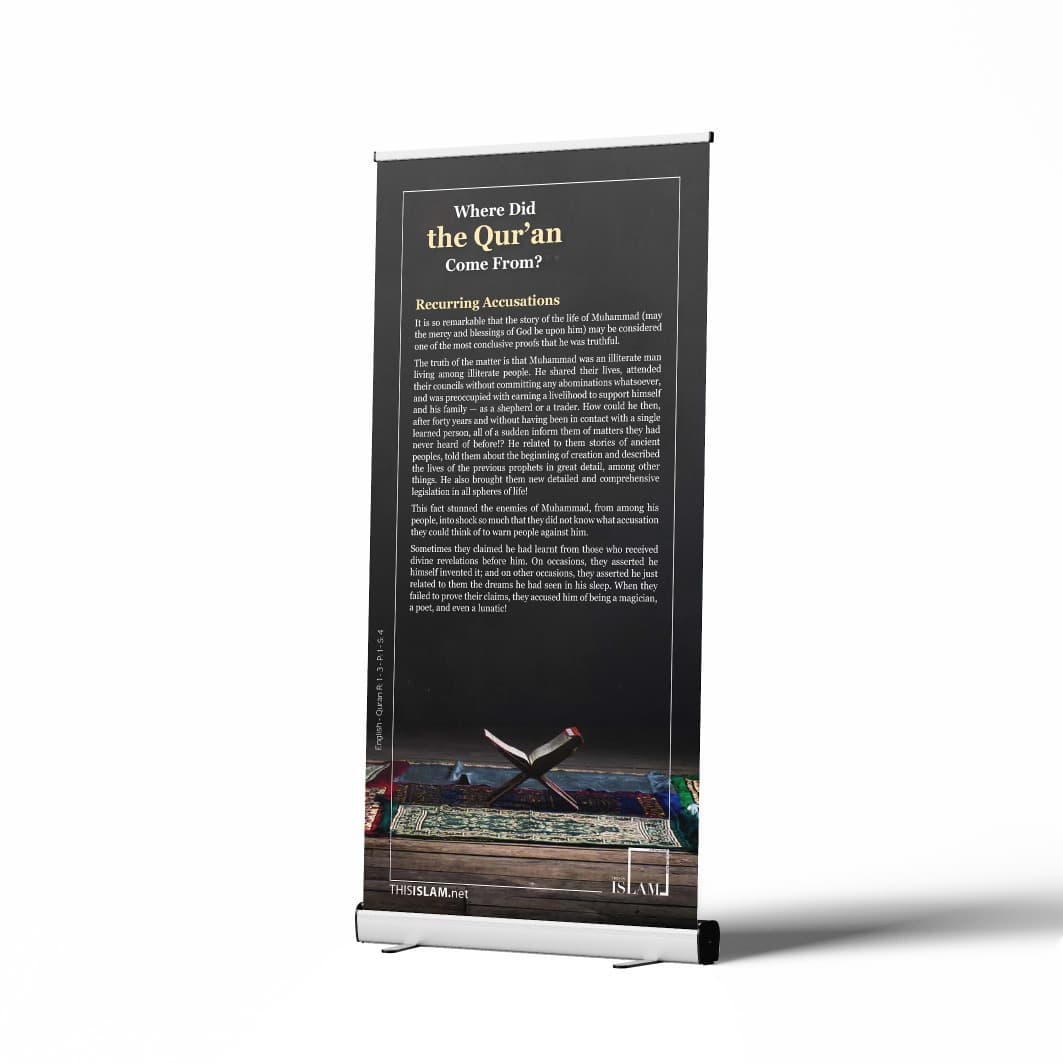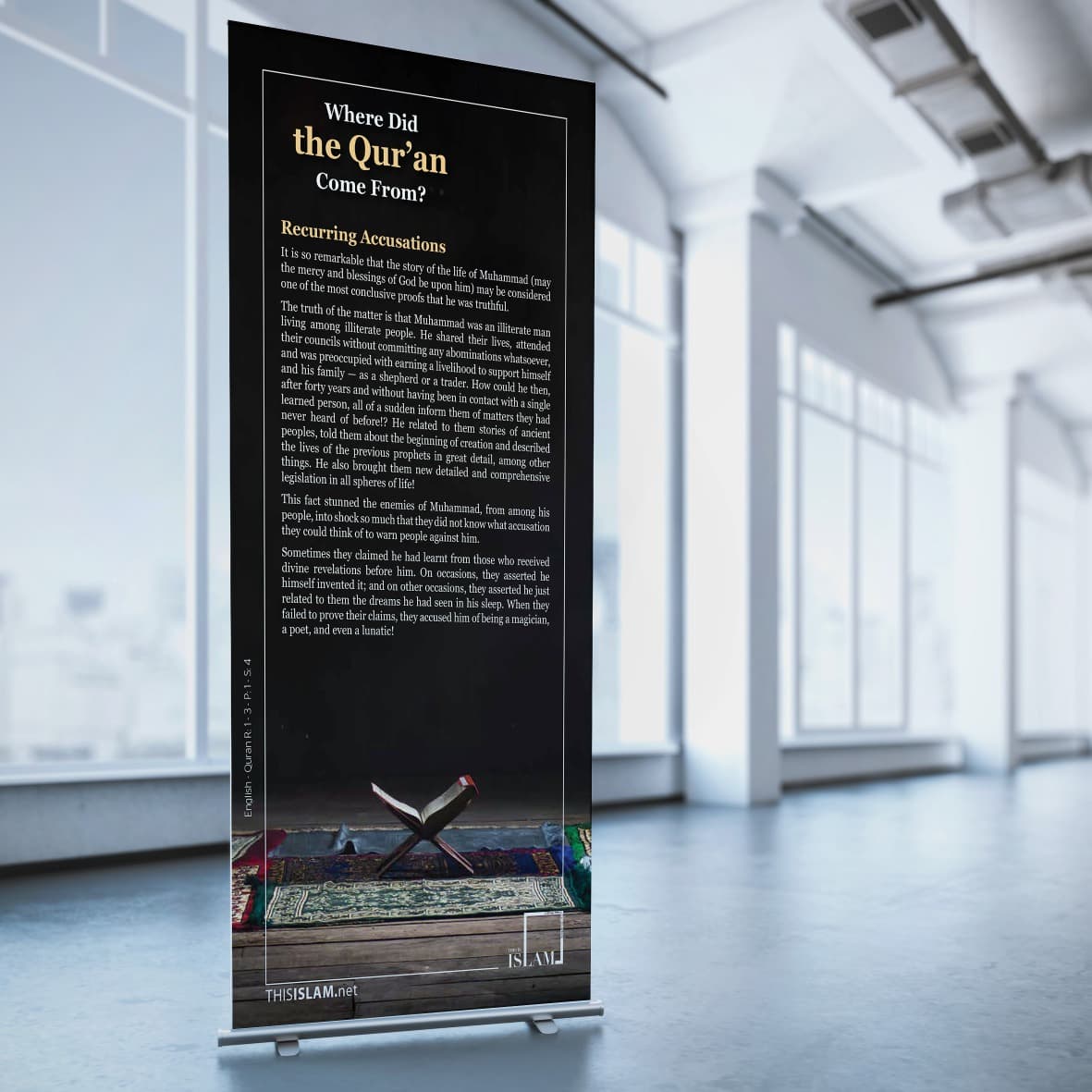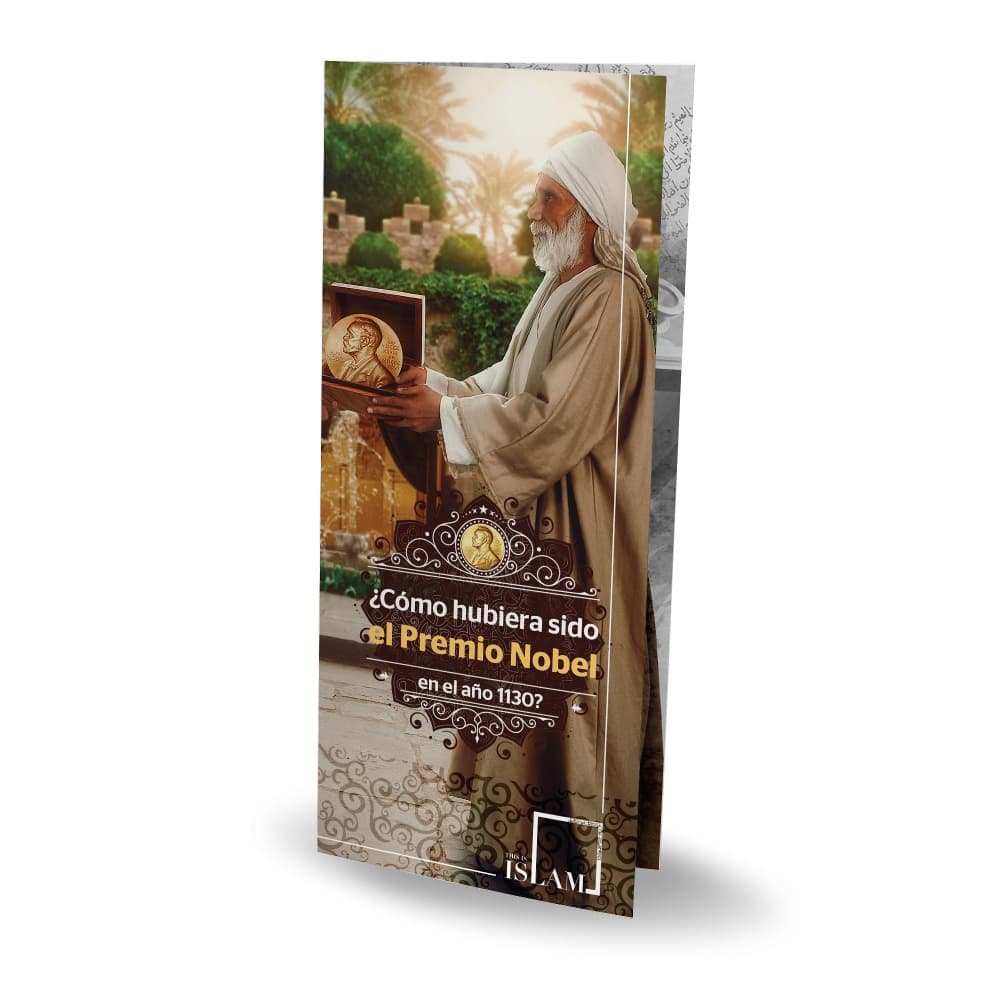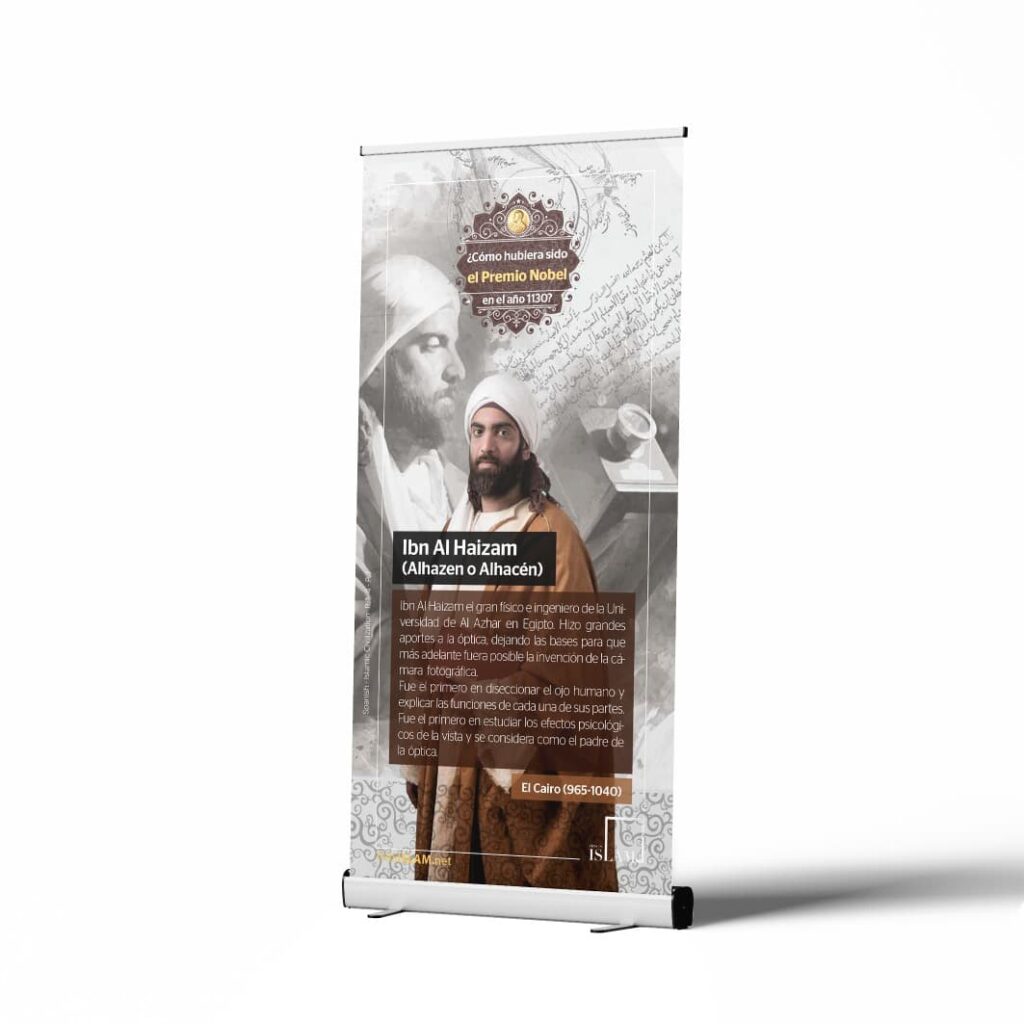Roll up: 1
Where Did the Qur’an Come From?
Recurring Accusations
It is so remarkable that the story of the life of Muhammad (may the mercy and blessings of God be upon him) may be considered one of the most conclusive proofs that he was truthful.
The truth of the matter is that Muhammad was an illiterate man living among illiterate people. He shared their lives, attended their councils without committing any abominations whatsoever, and was preoccupied with earning a livelihood to support himself and his family — as a shepherd or a trader. How could he then, after forty years and without having been in contact with a single learned person, all of a sudden inform them of matters they had never heard of before!? He related to them stories of ancient peoples, told them about the beginning of creation and described the lives of the previous prophets in great detail, among other things. He also brought them new detailed and comprehensive legislation in all spheres of life!
This fact stunned the enemies of Muhammad, from among his people, into shock so much that they did not know what accusation they could think of to warn people against him.
Sometimes they claimed he had learnt from those who received divine revelations before him. On occasions, they asserted he himself invented it; and on other occasions, they asserted he just related to them the dreams he had seen in his sleep. When they failed to prove their claims, they accused him of being a magician, a poet, and even a lunatic!
Roll up: 2
A Crucial Historical Fact
Any fair-minded person who is willing to look objectively at the teachings of Islam will by no means fail to ask: Was the Messenger of Islam, Muhammad (may the mercy and blessings of God be upon him), not Arab?
Does history not inform us that his own people had no art of their own to boast about except eloquence, articulate speech and literary expression for which they held forums, councils and gatherings, and that an Arab tribe would rise to glory or fall into disgrace because of a poem composed regarding it?!
In fact, history and literature books tell us that hardly had any one of these Arabs composed a work of poetry or prose than others would rush to rectify any defect in it, add whatever was missing and even respond to him using his own literary style. The power of literary expression was indeed the area in which they excelled and contested with one another and the field in which they proudly displayed their strength and excellence.
How could his mortal enemies — who left no stone unturned in their attempt to wage war on him, mete out harsh treatment to him and warn people against him — fail to take up his challenge when he asked them to produce a Qur’an similar to the one he had brought from his Lord, or at least a small portion of it, remaining instead in stupefied bewilderment, unable to face the challenge!? (Qur’an, 2:23)
Did Muhammad (may the mercy and blessings of God be upon him) not fear that by mounting such a challenge regarding a skill in which his enemies excelled in – both as individuals and groups- would spring to action and compete with him with a view to confuting him and proving to people that what he had brought was wrong!?
Let us suppose that he only mounted such a challenge because he knew his people were not capable enough of rising to his challenge. How could he then make it a permanent challenge to all the future generations until the end of time, firmly and emphatically stating that if all of them gathered together to produce a book like the Qur’an, they would fail to do so even if they helped one another as best they could?! (Qur’an, 17:88)
Roll up: 3
Every One Has His Final Word
After all, everyone will have his final word in this matter. Their judgements and attitudes about the Qur’an will essentially be based on their personal experience in carefully reading it and making an earnest effort to understand it, making sure to select an appropriate translation of it in their language, if they are not Arab, before judging it.
The Qur’an pointedly states that one of the greatest proofs of the sincerity of Muhammad’s prophethood lies in the outcome our hearts and minds reach after reading the Qur’an in an effort to understand it. It says:
“What? Is it not sufficient for them that We have sent down upon you the Book that is recited to them? Surely in that is mercy and a reminder to a people who believe.” (29:51).
Indeed, the Qur’an invites all mankind to read it and ponder over it in order to understand it; clearly stating that only those who have “locks on their hearts and minds” would refuse to do so (47:24).
You must have often learnt about a book which is considered to be a bestseller. Will you, then, find out about a book which is the most read and the most memorized even by very young Muslims?
Roll up: Size: 400cm x 250cm












Reviews
There are no reviews yet.